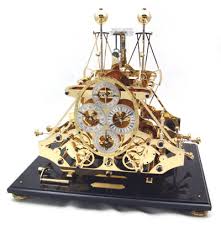Reflections on a Digital Civilizations Class.
A digital civilization class is one of the rare times when university education happens to collide with real life. I stated in an earlier post that I have always wanted a class to help me keep up with advancing technology instead of ancient history. I mentioned how the internet and 'technology' today is just as crucial as the printing press was during the renaissance. And if you don't keep up, you'll just be left in the stone age. So here are a few of my thoughts as I look back over the first part of the semester and review my progress.
webform test
Tuesday, September 28, 2010
Free capitalism vs $0.00 capitalism
Can business models that give successfully give away their products only apply to software? The discussion in Digital Civilizations today was about Adam Smith and economics. The main question asked was, "Was Adam Smith right or wrong?" I haven't made a conclusion yet if he was right or wrong but I have found some evidence to suggest that businesses can create a profit at extremely low prices.
Saturday, September 25, 2010
RSS Revisited
Thursday, September 16, 2010
Twitter = Mind reader?
This is a quick post. I was contemplating Twitter as I walked between classes on a busy campus sidewalk. As I was walking through the 'herd' of students walking between class I thought, "this is like twitter" (After thinking this through, its more like twitter is like real life but that is a side note) My mind is usually focused on where I am headed between classes and what I need to do or needed to do for my next class. But today I took some time to listen.
Open source animals?
Wednesday, September 15, 2010
St. Peter’s Basilica as a symbol of the counter reformation
I took an art history class in highschool, and after highschool for a senior trip went to Europe to see all the things that I had learned about. Because we have been talking about the Protestant reformation in my digital civilization class I decided to talk about the St. Peter’s Basilica as a symbol of the counter-reformation.
St. Peter’s Basilica’s architecture can be broken down into three contributions by three architects; Michelangelo, Moderno, and Bernini.
St. Peter’s Basilica’s architecture can be broken down into three contributions by three architects; Michelangelo, Moderno, and Bernini.
Skype to the rescue!
For our digital civilization class we had the assignment to explore new digital tools, then share what we learned with other members of our group. Brian shared with us what he learned about Skype.
Brian already had a skype account and decided to set his mom up with an account as well. Brian didn’t describe his mom as particularly computer savvy but he said that she was able to pick up quickly the concept of Skype and was able to intuitively use its interface.
Brian already had a skype account and decided to set his mom up with an account as well. Brian didn’t describe his mom as particularly computer savvy but he said that she was able to pick up quickly the concept of Skype and was able to intuitively use its interface.
Exactness, Order and Meticulous Detail
“In the art movement as every medium evolved, Printers sort of got left in the dust”
 |
| Lithography Press |
Saturday, September 11, 2010
The Three Crowns
I was just introduced to Francesco Petrarch in my Digital Civilization class. Petrarch is attributed as being the "Father of Humanism," but he wasn't alone. That is what I found so intriguing when I dug deeper to learn more about Petrarch. Petrarch ) was one of a group of three influential men that are given the name, "The Three Crowns" in Italy. One you will probably recognize, Dante Alighieri,
Wednesday, September 8, 2010
What does it take to discover a New World?
The topic of class discussion today was discovering New Worlds. The men of the Renaissance discovered Classical Greek literature. Copernicus and Galileo discovered that it is the Earth that rotates around the Sun and not the other way around. Before they succeeded however, Copernicus and Galileo had to oppose the accepted Catholic position that Ptolemy was correct.
This concept of defying convention in order to discover something new reminded me of a book I read last year. The title was Longitude:The True Story of a Lone Genius Who Solved the Greatest Scientific Problem of His Time. (Amazon $3.51) The setting is during the mid 1700's, and the English Parliament has offered a prize to whoever can solve the longitude problem. At the time, sailors knew how to find how far north or south they were relative to the equator by using a sextant, but they didn't know their position east or west. The favorite to win the prize was the Royal Society, where all of Britain's brightest gathered to discuss new topics. The current opinion was that the secret could be found in increasingly complicated Star Maps.
Enter John Harrison, a self-educated clockmaker by trade. John Harrison designed a clock (which he named a Chronometer) that could keep remarkably consistent time. Sailors would set the time for their home port (Greenwich, England). Then while they were on they ocean they would determine what time it was at their position, compare that to the time in Greenwich and be able to identify their location.
 John Harriso had to defy the accepted source of authority and prove that knowledge is not dependent upon social class or economic status. We don't need to own a boat or a space ship to discover new worlds. Sometimes we can discover new worlds by discovering something that makes us change the fundamental way in which we view the world.
John Harriso had to defy the accepted source of authority and prove that knowledge is not dependent upon social class or economic status. We don't need to own a boat or a space ship to discover new worlds. Sometimes we can discover new worlds by discovering something that makes us change the fundamental way in which we view the world.
This concept of defying convention in order to discover something new reminded me of a book I read last year. The title was Longitude:The True Story of a Lone Genius Who Solved the Greatest Scientific Problem of His Time. (Amazon $3.51) The setting is during the mid 1700's, and the English Parliament has offered a prize to whoever can solve the longitude problem. At the time, sailors knew how to find how far north or south they were relative to the equator by using a sextant, but they didn't know their position east or west. The favorite to win the prize was the Royal Society, where all of Britain's brightest gathered to discuss new topics. The current opinion was that the secret could be found in increasingly complicated Star Maps.
Enter John Harrison, a self-educated clockmaker by trade. John Harrison designed a clock (which he named a Chronometer) that could keep remarkably consistent time. Sailors would set the time for their home port (Greenwich, England). Then while they were on they ocean they would determine what time it was at their position, compare that to the time in Greenwich and be able to identify their location.
What do the Protestant Reformation and the Blogosphere have in common?
Have you ever noticed how the internet and the blogosphere closely resemble the Protestant Reformation? The Protestants were breaking away from the Catholic Church, the established source of authority of the time and creating their own churches. The internet is similar because now, anyone can publish whatever they want with only themselves as a reference of credibility.
I am in a Digital Civilization class this semester and am so excited to see how the class unfolds. It is like a semester long analogy of the similarities of the Reformation and Blogosphere. I have often thought that the internet and to some extent, the ability to understand/program computers is the current equivalent of the printing press during the middle ages. One of the complaints I have about a university education is that they don't have very many current event classes. If you want to learn about ancient graffiti in France, there are TONS of classes and some even required. But if you want to know how twitter works or how to find communities of information on the internet, you are out of luck.
Thank goodness for this class. It is team taught by two professors. One is a History professor that specializes in the renaissance, he covers the historical setting, literature movements and the general feel of the time period. The second is a Computer Science professor, he covers the evolution of computers and the development of our digital civilization.
I haven't been able to post until now and I really wanted to record my thoughts from the first day of class.
I am in a Digital Civilization class this semester and am so excited to see how the class unfolds. It is like a semester long analogy of the similarities of the Reformation and Blogosphere. I have often thought that the internet and to some extent, the ability to understand/program computers is the current equivalent of the printing press during the middle ages. One of the complaints I have about a university education is that they don't have very many current event classes. If you want to learn about ancient graffiti in France, there are TONS of classes and some even required. But if you want to know how twitter works or how to find communities of information on the internet, you are out of luck.
Thank goodness for this class. It is team taught by two professors. One is a History professor that specializes in the renaissance, he covers the historical setting, literature movements and the general feel of the time period. The second is a Computer Science professor, he covers the evolution of computers and the development of our digital civilization.
I haven't been able to post until now and I really wanted to record my thoughts from the first day of class.
Thursday, September 2, 2010
Subscribe to:
Posts (Atom)







